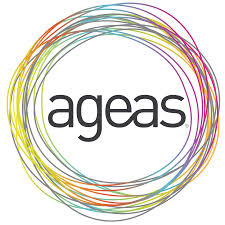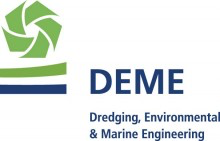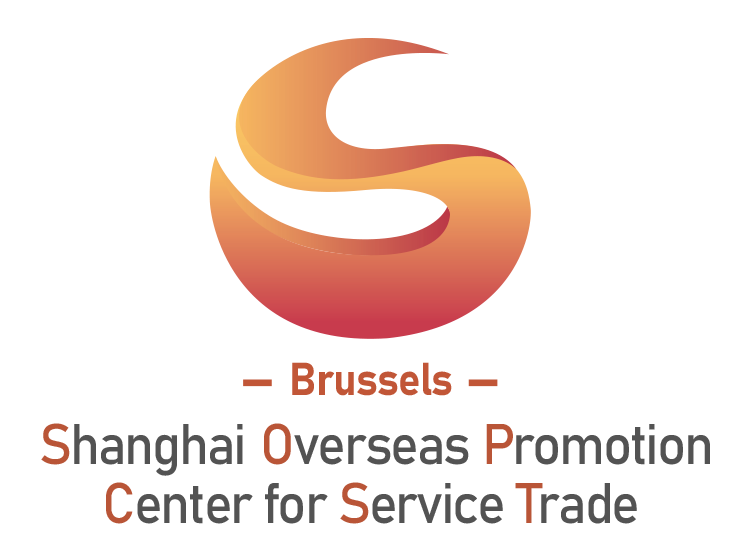The Global Times warns not to politicize the Comprehensive Agreement on Investment (CAI)
May-11-2021 By : fcccadmin
Cartoon published in the Global Times
The Global Times writes that after “the G7 Foreign Ministers’ meeting, the European Commission seems to have dialed down efforts to push forward its planned investment deal with China, with some media reports suggesting that EU efforts to ratify the China investment deal is on ice after sanctions.” The ratification process of the Comprehensive Agreement on Investment (CAI) cannot be separated from the evolving dynamics of the wider EU-China relationship, Miriam García Ferrer, Spokesperson of the European Commission, wrote in an e-mail to the Global Times. The prospects for the CAI’s ratification will depend on how the situation evolves, she added, referring to Chinese sanctions on members of the European Parliament and a parliamentary committee as “unacceptable and regrettable.” However, the Spokesperson did not say that the EU has halted efforts in ratifying the CAI, as EU Trade Commissioner Valdis Dombrovskis had indicated, because with the sanctions, “the environment is not conducive for ratification of the agreement.”
“However, the similar comments on the sanctions are a clear indication that the EU is still making the mistake of trying to politicize the massive investment deal,” the Global Times writes, adding that: “First and foremost, it should be noted that it is the EU that first launched sanctions against China without any reasonable reason, and China had only taken reasonable and justified countermeasures. If the EU let this political issue hijack the CAI ratification process, it would be a step further in the wrong direction.” “The statements from the EU about the ratification of the CAI also showed that some people within the bloc are trying to use China’s justified countermeasures as a reason to stop the investment deal. However, to unreasonably associate economic issues with political issues is bound to jeopardize the hard-won results,” the newspaper added.
“EU members such as France and Germany want the deal to be approved as soon as possible, and the EU is likely to approve the deal in the first half of 2022 at the latest when France takes over the rotating EU Council Presidency,” said Wang Yiwei, Director of the Institute of European Studies at Renmin University of China. German Chancellor Angela Merkel said she remained convinced that the EU-China investment deal was an “important undertaking” even as strained relations complicate the agreement’s ratification.
“Technically speaking, CAI can still be approved by the EU in the second half of the year or the first half of next year. However, the EU has to eliminate some hurdles. On the one hand, the bloc needs to unify inner voices over the issue. On the other hand, the EU needs to overcome U.S. pressure,” still according to the Global Times. Instead of politicizing the deal, the EU should take more practical actions to push forward the ratification of the deal so the agreement can be implemented soon, which is beneficial for both sides and the world economy, the Global Times concludes.
The writer of the commentary in the Global Times is Professor Jean Monnet, Chair Professor and Director of the Center for EU Studies at Renmin University of China.
The Shanghai Daily also announced that the “agreement on investment was in limbo after Brussels announced that it had suspended efforts to ratify the agreement as relations between the partners soured amid tit-for-tat sanctions.” The Shanghai Daily adds: “Dombrovskis has recognized that the CAI will struggle to secure acceptance in the European Parliament, where Social Democrats and Greens oppose it. French President Emmanuel Macron and German Chancellor Angela Merkel support the deal, but the CAI will only be ratified after Germany’s election in September, when Merkel will have stepped down. This could make a difference, particularly if the Greens are part of the next government in Berlin.”
Separately, the European Commission is considering a regulation preventing non-EU companies that receive government subsidies from investing in or acquiring European companies. Experts said that although the draft is unlikely to become law shortly, the move, nevertheless, signals the EU’s increasingly harsher posture toward China, where many companies are suspected of receiving government subsidies, including zero-interest loans and low-priced land use rights.
Signing and vote on EU-China investment agreement jeopardized by sanctions
Mar-30-2021 By : fcccadmin
The EU, followed by the UK, imposed sanctions on four Chinese officials and one organization it deemed responsible for devising and implementing discriminatory policies, arbitrary detention and degrading treatment on ethnic Uyghur muslims in Xinjiang. The EU prohibited the four from traveling to the EU and blocked their financial transactions. The U.S. had earlier already imposed sanctions on even more Chinese officials. It was the first time since the Tiananmen incident in 1989 that the EU had imposed sanctions on China. China’s reaction was swift, imposing its own sanctions on 10 EU individuals – including Reinhard Bütikofer, Chair of the European Parliament’s Delegation for Relations with China, and Michael Gahler, Chair of the European Parliament-Taiwan Friendship Group, Ambassadors, and Members of the European Parliament. Four organizations were also sanctioned, including the Mercator Institute for China Studies (MERICS) in Berlin. The non-profit Alliance of Democracies Foundation, founded by former NATO Secretary General Anders Fogh Rasmussen, was on the list. Also included is Adrian Zenz, a German scholar whose research was cited by the U.S. State Department last year to support alleged abuses in Xinjiang. Enterprises connected to those individuals will be barred from doing business in China. China also imposed sanctions on nine UK individuals and four entities.
Soon after Beijing’s countermeasures were announced, the Socialists and Democrats (S&D) – the second-largest grouping of lawmakers in the European Parliament – said they would not engage in any talks on the CAI until the measures are lifted.
China summoned foreign diplomats in protest after the United States, the European Union, Canada and Britain separately imposed sanctions on senior Chinese officials. Chinese Foreign Ministry Spokesperson Hua Chunying called the new sanctions “slander and an affront to the reputation and dignity of the Chinese people.” The accusations against China are based on fake files, words from unidentified sources, and even distortion of official documents, Hua told reporters. “The so-called sanctions based on lies are not acceptable,” Foreign Minister Wang Yi added.
The Global Times pointed out that the Chinese market is indispensable to the European automotive industry, a pillar of the European economy, as 28.6% of new BMW cars were sold in the Chinese market in 2019, making China the largest market for the German automaker for the eighth year in a row. Volkswagen’s new car sales in the Chinese market also accounted for nearly 39% of its global sales in 2019.
China does not accept some European countries’ unjustifiable practice of summoning Chinese envoys, Foreign Ministry Spokeswoman Hua Chunying said, accusing the European Union of engaging in hegemony and hypocrisy. “The EU side is playing double standards as it only allows itself to arbitrarily smear and attack others, and even arbitrarily imposes sanctions based on fake information and lies, but does not allow China to talk back or hit back,” Hua said. She added that what the U.S. and its allies had done reminded people of the Eight-Nation Alliance Force that invaded China in 1900. “China is not what it was 120 years ago. They should know that the Chinese people are not to be messed with,” she said.
China called on the EU to return to its China strategy of the past decade – focussed on promoting trade and investment – that has proven to be successful.
This overview is based on reporting by the China Daily, Shanghai Daily, Global Times and The Guardian.
Foreign direct investment (FDI) up 6.2% in 2020
Jan-26-2021 By : fcccadmin
China’s foreign direct investment (FDI) increased by 6.2% year-on-year in 2020 to reach a record high of CNY999.98 billion, according to China’s Ministry of Commerce (MOFCOM). China overtook the U.S. and regained the title of the world’s top destination for FDI, thanks to its effective anti-epidemic measures that allowed factories to restart while production in the rest of the world was still affected by the Covid-19 pandemic. China’s actual use of FDI rose in total amount, range of growth and world share. FDI from the top 15 countries and regions surged 6.4% year-on-year, taking up 98% of the FDI inflow. Investments from the Netherlands and the UK led, with increases of 47.6% and 30.7%, respectively. Investment from ASEAN in China was up 0.7%. More FDI went into the services and high-technology sectors. The actual use of FDI in the services industries grew 13.9%, while that of high-tech industries rose 11.4%, according to MOFCOM. In U.S. dollar terms, foreign capital inflow went up by 4.5% year-on-year to USD144.37 billion last year.
Globally, FDI flows are likely to have decreased by 30% to 40% year-on-year in 2020, according to a report by UNCTAD. In 2019, the U.S. was the largest recipient of FDI, attracting USD251 billion, followed by China with USD140 billion. “The huge FDI flows to China are in stark contrast to other major economies such as the U.S. and Europe last year, after investment fled abroad due to uncertainties over production and coronavirus control,” Cong Yi, Professor at the Tianjin University of Finance and Economics, told the Global Times. In 2020, China was the only major economy to expand, with a GDP growth rate of 2.3%. Consumer spending represented 54.3% of total economic output, marking a new high.
Asgar Rangoonwala, Chairman of the Pharmaceutical Association Committee of the China Association of Enterprises with Foreign Investment, said the Committee’s 42 multinational members are very optimistic about the potential and future development of the healthcare market in China and will step up investments. Italian tire maker Pirelli plans to invest more in tires with technical features such as noise-cancellation, run-flat and seal-inside functions that are suitable for new energy vehicles (NEVs). Zhou Hong, CEO of Roche Pharma China, said China is advancing higher-standard opening-up, stabilizing foreign investment and pursuing higher-quality development, and the company will invest more in China as it feels fully confident in its future. Rogier Janssens, Managing Director and General Manager of the healthcare arm of Merck China, said with China’s further opening up, foreign enterprises gain more benefits in terms of market access and intellectual property protection. The ever-improving business environment will enable foreign companies to better operate their businesses, Janssens said, as reported by the China Daily. Overall, global FDI had collapsed in 2020, falling by 42% to an estimated USD859 billion, from USD1.5 trillion in 2019, according to UNCTAD’s Investment Trends Monitor.
EU and China conclude Comprehensive Agreement on Investment (CAI)
Jan-05-2021 By : fcccadmin
China and the EU have concluded negotiations for the bilateral investment treaty (BIT) – also known as the Comprehensive Agreement on Investment (CAI) – as planned before the end of the year 2020. Chinese President Xi Jinping held a video-conference on December 30 with German Chancellor Angela Merkel, French President Emmanuel Macron, President of the European Council Charles Michel and EU Commission President Ursula von der Leyen. Xi stressed during the video conference that the “balanced, high-level, and mutually beneficial” pact demonstrates China’s determination and confidence to open up on a higher level, and it will provide broader market access, a better business environment, stronger institutional guarantees and brighter prospects for bilateral cooperation. The BIT will push post-Covid-19 global economic recovery, promote global trade, investment liberalization and facilitation, enhance the international community’s confidence in economic globalization and free trade so as to contribute to China and the EU’s efforts to build an open global economy, Xi said. Xi vowed that China and the EU would join hands together in 2021. The pact shows to the world that even if China and EU have differences on some issues, both sides have the political willingness to enhance dialogue, deepen cooperation and share the benefits based on mutual respect, he said.
Follow-up work start immediately, including making the legal text of the agreement available for signing, accelerating internal approval processes and promoting the entry into force of the agreement. The talks on the CAI kicked off in late 2013, with 35 rounds of official negotiations having been held, including 10 rounds in 2020, which marked the 45th anniversary of the establishment of diplomatic relations between China and the EU. Progress of the negotiations was closely monitored by a working group headed by Chinese Vice Premier Liu He and Valdis Dombrovskis, Executive Vice President of the European Commission.
President Xi Jinping put forward five proposals related to the agreement, namely coordinating efforts to fight against pandemics, jointly promoting recovery of the economy, connecting development strategies, promoting green development, and pushing forward multilateral cooperation. The CAI covers far more areas than traditional bilateral investment treaties, including market access commitments, fair competition rules, sustainable development and dispute settlement. Both China and the EU have made “high-level and reciprocal” market access commitments, and all the rules are “applied both ways,” China’s Ministry of Commerce (MOFCOM) noted.
Chinese companies will receive binding commitments of access to the EU market under the agreement, while China will open up its financial, manufacturing and services sectors to the 27-nation bloc, said Li Yongsha, Deputy Director of MOFCOM’s Department of Treaty and Law. Although the European investment market is relatively open, through the agreement the EU provides Chinese companies with legally binding market-access commitments, she added. Consensus was reached on issues such as energy, state-owned enterprises (SOEs), transparency of subsidies, technology transfer, standards setting, administrative enforcement and financial regulation, Li said, adding that the agreement also made provisions on environmental issues.
The China Daily quoted Jochum Haakma, Chairman of EU-China Business Association (EUCBA), as saying that the Association is very happy that a decision to conclude the negotiations has been taken, and of course details will need to be hammered out in coming months and ratified by the European Parliament. Based on the negotiations, European companies active in industries including financial services, telecommunications services and new energy vehicles (NEVs) would see new opportunities in China, he said. It will be of great importance and a big step for the bilateral relationship and shows the political willingness of both parties to continue to sit down together and to try to solve problems and misunderstandings on the basis of reciprocity and a level playing field, he added.
The European Union Chamber of Commerce in China said it “welcomes the news that a political agreement has been reached. The business community looks forward to parsing through the details and what they mean for solidifying the legal position of European companies already in China, as well as for those that may be new entrants to the market as a result of the agreement. Of course, the agreement will not come into force until final texts are developed and then ratified by both sides, which will likely require overcoming additional hurdles. The European Chamber hopes to see that decision-makers maintain the same spirit of engagement that carried the day for the political agreement so that they can deliver an enforceable pact.” “We eagerly await the release of the details of this political agreement, and hope to find a robust and bold conclusion,” said Joerg Wuttke, president of the European Union Chamber of Commerce in China. “A strong agreement would be a powerful statement to show that constructive engagement can produce results.” Trade relations between China and the EU have developed fast in recent years, but bilateral investment has lagged seriously behind, with investment to and from Europe only accounting for a tiny proportion of the two sides’ overall foreign investment.
The number of China-Europe freight trains increased by 50% in 2020 to 12,400 trains, according to the China State Railway Group (China Railway). It was the first year the number of trains exceeded 10,000 since their launch in 2011, marking resilient bilateral trade in hard times, the Global Times comments. The number of containers delivered by the China-Europe freight trains reached 1.13 million, up 56% year-on-year.
Chinese companies remain interested to invest in Europe
Nov-24-2020 By : fcccadmin
Spazio Lenovo’s concept store in Milan
Chinese companies’ enthusiasm for investing in Europe remains high, despite the coronavirus pandemic’s devastating impact on the global economy, according to industry insiders and analysts. A stable, secure environment in Europe and favorable political conditions are attractive for investors, the experts said. Gina Qiao, Senior Vice President and Chief Strategy and Marketing Officer at Lenovo Group, said the company has been investing in Europe to help drive sales and boost efficiency. “Two recent examples of this are the opening of Spazio Lenovo – our first European flagship store, which launched in Milan, Italy, in September – and our plan to open a new in-house manufacturing facility in Hungary in the spring to increase our production capacity and better serve our European customers,” she said. Lenovo is among the top three companies in terms of personal computer sales in nearly all European countries and the leading vendor in key markets such as Germany and Italy. Qiao said that as working, learning and spending more leisure time at home have become the global norm during the pandemic, the company has seen strong growth in demand for devices and games, along with rising cloud and infrastructure business.
Last year, Chinese investment in Europe rose rapidly, but fell significantly in Latin America, North America and Africa, according to the 2019 Statistical Bulletin of China’s Outward Foreign Direct Investment. The bulletin was recently issued by the Ministry of Commerce (MOFCOM), the National Bureau of Statistics (NBS) and the State Administration of Foreign Exchange (SAFE). China’s overseas direct investment (ODI) in Europe totaled USD10.52 billion last year, a rise of 59.6% year-on-year, with most of it going to the Netherlands, Sweden, Germany and the United Kingdom. By the end of last year, the country had set up more than 3,200 enterprises in the European Union, covering all the trading bloc’s member states and employing more than 260,000 foreign workers. He Yun, Assistant Professor at Hunan University’s School of Public Administration, said Europe offers a stable and legally secure environment for Chinese investment, compared with some developing countries, where there tend to be more risks. In contrast to the United States, relations between China and European countries are generally advantageous for Chinese investment. Moreover, since 2008, the euro exchange and interest rates against the yuan have been relatively low, favorably pricing European assets and reducing costs for Chinese investors. “There is still a lot of enthusiasm among Chinese companies for investing in Europe, but the continent needs to contain Covid-19 first to enable its economies and investment inflows to recover,” He said. She added that foreign investment, including that from China, could be crucial to Europe’s post-pandemic recovery. “The European Union should facilitate the swift conclusion of a bilateral investment agreement to make two-way investment between the EU and China easier,” she added.
Roland Brouwer, the Netherlands Foreign Investment Agency’s Executive Director for China, said that for many years China has been the Netherlands second-largest source of investment. “Most companies see the Netherlands as a springboard into the European market,” he said. Chinese companies are highly active in sectors such as information and communications technology, electronics, high-tech, chemicals, transportation and logistics, agrifood and creative industry. ODI from Chinese tech companies last year nearly doubled compared with five years ago, Brouwer said.
In 1998, BYD, a major Chinese manufacturer of new energy vehicles, established its European subsidiary in Rotterdam, the Netherlands, focusing on providing new energy products and services, including vehicles, rechargeable batteries and solar panels. Isbrand Ho, Managing Director of BYD Europe, said the company’s main development strategy in the European market, where great importance is attached to carbon emissions, has focused on promoting its electric buses. In 2017, BYD established its first electric bus and truck factory in Hungary, with an investment of more than €30 million. The following year, it set up its second factory in France, with an investment of €10 million. “To date, BYD has received orders for more than 1,400 pure electric buses, taking up about 20% of the European market,” Ho said. “Our pure electric bus footprint covers more than 100 cities in 20 countries, including Amsterdam, London, Brussels and Turin, and has provided them with green solutions.” He added that BYD Europe has more than 500 employees, with over 50% of them locals. The company also has a research and development center and a localized R&D team in the Netherlands. Despite the pandemic, BYD has tackled the difficulties and delivered products and services on time, including putting its pure electric buses on the roads in the UK, Spain and Germany. The company is also due to launch its pure electric trucks in the European market, including 7.5-metric-ton light trucks, 19-ton heavy trucks and tractors, and 2.6-ton vans.
Raymond Wang, Partner at global consultancy Roland Berger, said that attract more Chinese investment, the first thing European countries need to do is ensure the Covid-19 outbreak has been fully contained, the China Daily reports.
- KURT VANDEPUTTE (UMICORE) APPOINTED CHAIRMAN OF THE BOARD OF THE FLANDERS-CHINA CHAMBER OF COMMERCE (FCCC)
- Webinar: “Knowing Your Chinese Partner” – May 26, 2021, 10 am – 12 am
- EMA starts rolling review of CoronaVac, WHO approves Sinopharm vaccine for emergency use
- The Global Times warns not to politicize the Comprehensive Agreement on Investment (CAI)
- Hainan to become biggest duty-free market in the world


































